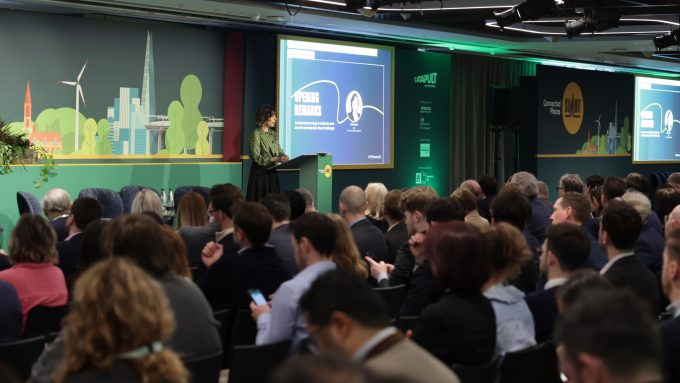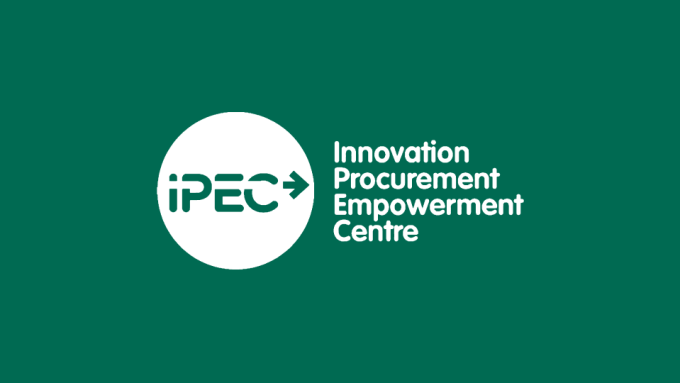
Financing our future – highlights from the Connected Places Summit

“One thing I'd like everybody to think about is funding,” remarked Vernon Everitt, the Transport Commissioner for Greater Manchester at the Connected Places Summit.
“We've lost the connection between the funding of capital projects to improve transport infrastructure, and having steady and sustained revenue funding so that we can then deliver better services.
“We need to provide the evidence to reconnect those pipes so that everyone can see that investment in transport isn't an end in itself; it's an enabler of everything else,” he added.
The funding landscape is certainly very challenging at the moment for city leaders, but Vernon says Greater Manchester has benefitted from having five-year capital funding settlements from Government, “which enable you to plan ahead”. But what it needs more of is sustained revenue funding.
“We've been engaging with Government and others just to think about how we can simplify that funding structure to give us the certainty we need to push on with projects and deliver better services, and to give confidence to our supply chain that these things will be seen through to fruition.
“That certainly enables them to invest in skills, and all the other things they need to do to deliver for us.”

The Association for Consultancy and Engineering’s new chief executive Kate Jennings said everyone working in the sector is aware of the need for investment in infrastructure. What would be helpful, she added, is for the Government to introduce an industrial strategy and urgently update its infrastructure strategy.
She added: “We need to get on with delivery, but the taxpayer hasn't got enough money to pay for the infrastructure investment that we really need; whether that's transport upgrades, or in the energy system to support the economy.
“We need to get the financial partnership between Government and industry right in order to enable effective investment in infrastructure across the UK.”
Finance matters discussed on stage
A keynote address from the National Infrastructure Commission’s chair Sir John Armitt heard that the productivity gap in major English cities is in the tens of billions of pounds a year, and cannot afford to go on. “Core Government funding can only get us so far,” Sir John noted. “It is reasonable that cities should contribute to the cost” and have the autonomy to raise funds.
“The next Government will not have any choice but to pull all the levers at their disposal if they want to increase UK productivity,” he continued, and that means increased public investment in infrastructure. Shortly before the Summit, Sir John commented in a Financial Times piece that the Government needs to hurry up on introducing measures to support decarbonisation.

Later at the event, Connected Places Catapult’s chief executive Erika Lewis asked a panel of speakers how place leaders can be helped to make the case for public infrastructure investment at a time of increasing fiscal pressure.
Aviva Investors’ managing director and head of infrastructure Darryl Murphy said more needs to be done to explore how to link economic investment with supporting more social investments at a local level. “We have to get better at articulating that case”, he said.
Also during the session, former Olympic cycling champion Chris Boardman – now the National Active Travel Commissioner – said that active travel represents “the cheapest and best return on investment there is” but added that cycling and walking still have “a marketing problem” and that more needs to be done to promote their benefits.

The Summit also featured sessions exploring the work of 3Ci – the Cities Commission for Climate Investment, of which Connected Places Catapult is a partner – to secure investment in community-led projects aimed at achieving net zero.

The evening before the Summit, 3Ci released its latest report detailing initial findings and recommendations of its Net Zero Investment Taskforce. The report, titled ‘From Challenge to Opportunity: Unlocking a UK-wide Net Zero Investment Dividend’ was unveiled at an event in the Houses of Parliament, where Ed Miliband MP gave a keynote speech.
At the Summit, other positive examples of leadership in terms of spending were outlined during a keynote interview discussing the UK’s Procurement Bill. Cabinet Office Minister Baroness Neville-Rolfe DBE CMG said the Bill “puts SMEs at the heart of public procurement” and added that one of the key barriers as a small business was “getting a look in compared to the bigger companies”. She gives more details in a podcast episode following the Summit.

Delegates also heard about the work of the Innovation Procurement Empowerment Centre from its head, Rikesh Shah. “There is urgent need to deliver more with less,” he said. “As such, IPEC is working with public bodies to empower them to be able to better use procurement as a lever to create new innovation value and deliver better, cheaper and quicker outcomes.”





